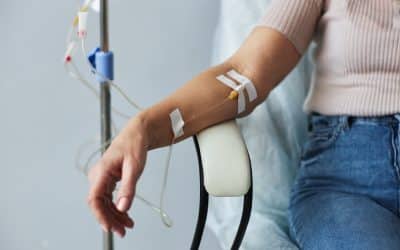In the last decade, both interest in and our understanding of the human microbiome have increased considerably. We now understand that the human microbiota (all the microorganisms that live on and in humans) is an overlooked system that makes a significant contribution to our body’s function and health.
Gut microbes are co-dependent with their human host, and the health of one affects the other. Research shows that an imbalanced gut microbiome is associated with multiple diseases both within and outside of the digestive system.
What is SIBO?
SIBO, small intestinal bacterial overgrowth, is a serious condition affecting the small intestine. It occurs when there is an abnormal increase in the bacterial population in the small intestine. The bacteria produce toxins and gases and interfere with the absorption of nutrients and water.
SIBO develops when the passage of food and waste products through the digestive tract is slowed, creating an ideal breeding ground for bacteria. This can occur for several reasons, including anatomic abnormalities and pH changes in the small intestine, your immune system not working properly and malfunctions in the muscular activity of the small intestine, meaning that food and bacteria are not removed from the organ. SIBO can also occur because of an underlying chronic condition, for example Crohn’s disease, coeliac disease, diabetes, and IBS (irritable bowel syndrome).
Symptoms of SIBO
There are many symptoms of SIBO, most of which affect the gut, including abdominal pain and distension (especially after eating), bloating, cramps, diarrhoea, constipation, indigestion, bloating, nausea, loss of appetite and more.
You may also experience unexpected weight loss, malnutrition and dehydration as the bacteria use up your body’s nutrients and water.
On top of these symptoms, SIBO can cause additional complications. For example, bile salts, which are usually needed to digest fats, are broken down by the excess bacteria. This results in incomplete absorption of fats which causes diarrhoea.
Incomplete absorption of fats also means your body is unable to fully absorb the fat-soluble vitamins A, D, E and K. Vitamin deficiency can also be caused by the bacteria in the small intestine using up too much vitamin B-12.
Over time, damage to your small intestine from abnormal bacterial growth causes poor calcium absorption. This can lead to osteoporosis and kidney stones.
Diagnosis
Genova Diagnostics offer an advanced, non-invasive stool test which can provide a comprehensive assessment of the health of the gut. The test uses cutting-edge technologies and biomarkers in areas of digestion, absorption, inflammation, immunology and gut microbiome to offer a valuable insight into digestive function, intestinal inflammation, and the intestinal microbiome.
Genova uses a combination of PCR, culture and microscopic methods to ensure all relevant organisms are identified, including specific enzymes, bacteria, and other pathogenic or potentially pathogenic organisms that may be causing intestinal problems.
The results of the test can reveal important information about the root cause of many common gastrointestinal issues, such as SIBO. It can also help your doctor to analyse the performance of your digestive system and recommend appropriate treatment.
Patients will receive a report that includes an interpretation of their results and suggestions for further testing or treatment.
If you are experiencing intestinal problems, please discuss with one of our doctors to find out if a Genova comprehensive stool analysis is right for you. This test can help you identify the cause of your problems and suggest appropriate treatment.
Treatment
Wherever possible, doctors treat SIBO by dealing with the underlying problem. If this is not possible, treatment focusses on correcting nutritional deficiencies and eliminating bacterial overgrowth. You may need replacement of fluids, vitamins or minerals, for example by an intramuscular vitamin injection, in cases of dehydration and malabsorption.
The number of bacteria in the small intestine can be reduced by antibiotics, however this is not a long-term solution as it does not address the underlying issue. Minor changes in diet such as eating smaller meals more frequently to avoid having too much food sitting in your stomach may also help.




